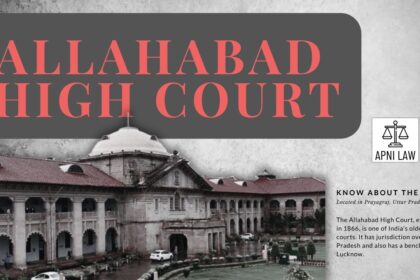Code: Section 502 BNSS
(1) When a person is convicted of an offence by use of criminal force or show of
force or by criminal intimidation, and it appears to the Court that, by such use of force or
show of force or intimidation, any person has been dispossessed of any immovable property,
the Court may, if it thinks fit, order that possession of the same be restored to that person
after evicting by force, if necessary, any other person who may be in possession of the
property:
Provided that no such order shall be made by the Court more than one month after the
date of the conviction.
(2) Where the Court trying the offence has not made an order under sub-section (1),
the Court of appeal, confirmation or revision may, if it thinks fit, make such order while
disposing of the appeal, reference or revision, as the case may be.
(3) Where an order has been made under sub-section (1), the provisions of
section 500 shall apply in relation thereto as they apply in relation to an order under section 499.
(4) No order made under this section shall prejudice any right or interest to or in such
immovable property which any person may be able to establish in a civil suit.
Explanation of Section 502 BNSS
Section 502 of the BNSS empowers the Court to restore possession of immovable property to a person who has been dispossessed through criminal force, intimidation, or unlawful means. This provision is designed to address cases where unlawful eviction has occurred as a result of criminal acts.
Key Provisions:
- Restoration of Possession: The Court can order the restoration of possession to the dispossessed individual after convicting the offender.
- Time Limit: Such an order must be made within one month of the conviction.
- Appellate and Revisional Powers: If the trial Court does not pass such an order, the appellate, confirmation, or revision Court can do so during the case review.
- Civil Rights Unaffected: The order does not affect any civil rights or claims to the property, allowing individuals to pursue such matters in civil courts.
Illustration
Example 1: Illegal Eviction
A person is convicted under criminal intimidation for forcibly evicting someone from their home. The Court orders the restoration of possession to the original occupant, using force if necessary to remove the unlawful occupant.
Example 2: Appellate Court’s Role
In an appeal against a conviction, the appellate Court finds that the trial Court did not order restoration of property. The appellate Court, while disposing of the appeal, issues an order for the restoration of possession.
Common Questions and Answers on Section 502 BNSS
1. Can the Court order the restoration of possession without a criminal conviction?
- Answer: No, the restoration order can only be made following a conviction for an offence involving criminal force, intimidation, or related criminal acts.
2. What if the trial Court doesn’t issue a restoration order?
- Answer: The appellate, confirmation, or revision Court can issue the order if it finds it appropriate during the case review.
3. Does this section override civil property rights?
- Answer: No, Section 502 does not affect civil property rights. Individuals can still pursue claims related to ownership or tenancy in civil courts.
4. What happens if the eviction is not carried out within the one-month timeframe?
- Answer: If the order is not made within one month of the conviction, the Court loses the authority to pass such an order unless it’s made by an appellate or revisional Court.
Conclusion
Section 502 BNSS is a critical safeguard against unlawful dispossession. It ensures that individuals who have been wrongfully evicted through criminal acts can seek legal redress, and the property can be restored to its rightful possessor. Importantly, it maintains a balance between criminal and civil law, respecting both criminal convictions and civil property rights.








